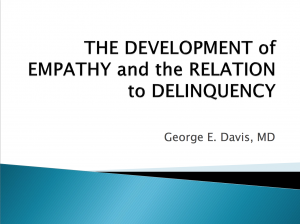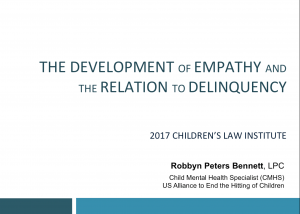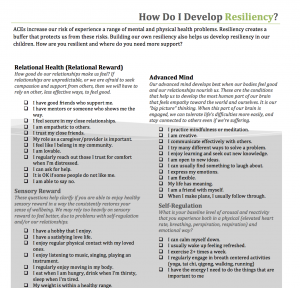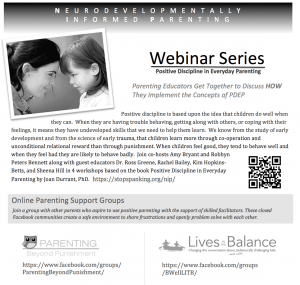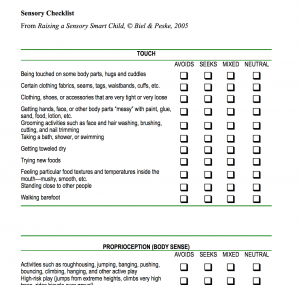Neurodevelopment of Empathy & Psychopathy
This lecture on the developmental roots of empathy and psychopathy is relevant to the social workers and the children’s legal system who are attempting to influence the quality of child care and parenting. Also, since the transition from early abuse and the consequential involvement in child protective services into the juvenile justice system is extremely high, the topic is also pertinent to juvenile justice workers like probation and parole, and juvenile correctional officers. There has always been a high value placed upon empathy in human relations, and although it has been defined differently at times, it is generally agreed that its absence contributes to violence, criminality and psychopathy. Although attachment and empathy are not the same, they are related achievements of early human neurodevelopment that constitute the most basic foundation for successful interpersonal relations and positive social participation.
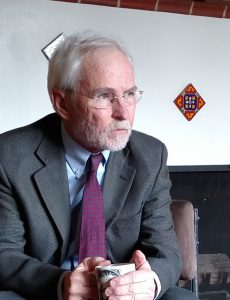 George Davis is a Child and Adolescent Psychiatrist currently in private practice in Albuquerque, New Mexico. He formerly served as Director of Psychiatry for the New Mexico Department of Children, Youth and Families, which encompassed all essential state services for the children of New Mexico including early childhood development, child protection, and juvenile justice. Dr. Davis is a fellow with ChildTrauma Academy. He lectures nationally on the topic of delinquency as an outcome of early neglect and abuse, extreme behavioral disorders in young children, psychopharmacology, and systems of care for severely disabled and underserved populations.
George Davis is a Child and Adolescent Psychiatrist currently in private practice in Albuquerque, New Mexico. He formerly served as Director of Psychiatry for the New Mexico Department of Children, Youth and Families, which encompassed all essential state services for the children of New Mexico including early childhood development, child protection, and juvenile justice. Dr. Davis is a fellow with ChildTrauma Academy. He lectures nationally on the topic of delinquency as an outcome of early neglect and abuse, extreme behavioral disorders in young children, psychopharmacology, and systems of care for severely disabled and underserved populations.
 Robbyn is a psychotherapist, educator, and child advocate who specializes in the treatment of mental health problems due to early abuse and neglect. She has worked extensively with families involved with child protective services, the foster care system and adoption support. Robbyn is Phase II certified in the Neurosequential Model of Therapeutics (NMT), a neurodevelopmentally informed assessment process useful in working with traumatized children through the Child Trauma Academy. Robbyn lectures nationally on the topic of trauma and the effects of harsh punishment. In her TED talk, she addresses the long-term effects of spanking and other forms of domestic violence on long-term health. She is the founder of StopSpanking.org, an online resource educating the public on the dangers of spanking and on positive parenting alternatives. She is VP, with the U.S. Alliance to End the Hitting of Children.
Robbyn is a psychotherapist, educator, and child advocate who specializes in the treatment of mental health problems due to early abuse and neglect. She has worked extensively with families involved with child protective services, the foster care system and adoption support. Robbyn is Phase II certified in the Neurosequential Model of Therapeutics (NMT), a neurodevelopmentally informed assessment process useful in working with traumatized children through the Child Trauma Academy. Robbyn lectures nationally on the topic of trauma and the effects of harsh punishment. In her TED talk, she addresses the long-term effects of spanking and other forms of domestic violence on long-term health. She is the founder of StopSpanking.org, an online resource educating the public on the dangers of spanking and on positive parenting alternatives. She is VP, with the U.S. Alliance to End the Hitting of Children.
Brene Brown talks about the difference between empathy and sympathy. Our brains are wired to run from pain—including emotional pain—whether it is ours or someone else’s. Brown points out in this video that empathy rarely starts with the words, “At least…” and that oftentimes, the best response is, “I don’t know what to say, but I am really glad you told me.” Fixing your loved one’s problem is not often what is needed, nor is it necessarily your job or even within your ability to do so. Sharing a listening, caring ear is something most people can do. When we feel heard, cared about, and understood, we also feel loved, accepted, and as if we belong.
Robbyn Peters Bennett, LMHC, CMHS is a psychotherapist, educator, and child advocate who specializes in the treatment of trauma-related mental health problems resulting from the effects of early childhood stress, abuse and neglect. She is the founder of StopSpanking.org, a non-profit dedicated to educating the public on the dangers of spanking. She is on the steering committee of The U.S. Alliance to End the Hitting of Children dedicated to supporting the movement to end spanking in the US.
We can connect with anybody, if we can meet them on their frequency! To learn more about Chris Ulman, special education instructor, and his work with children go to his
Facebook page: https://www.facebook.com/specialbooksbyspecialkids/videos/897982523637062/?pnref=story


